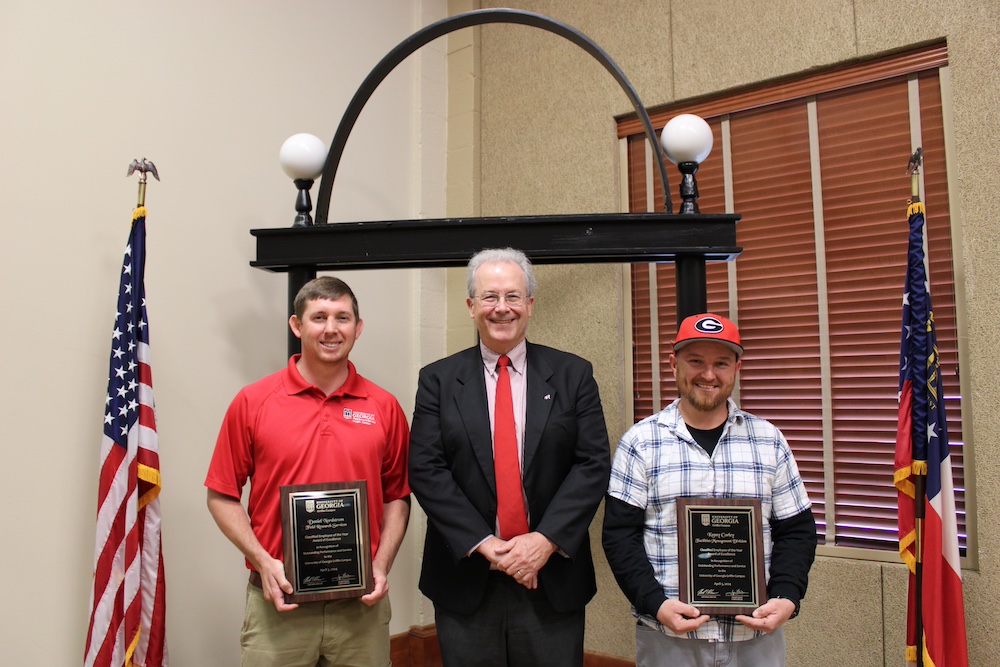By William Terry Kelley
University of
Georgia

Volume XXXI |
Many people have become all too familiar with the symptoms. Young leaves usually turn bronze and later develop small, dark spots. The growing tips of the tomato die back, and stems of terminals may become streaked. Some plants may look one-sided or may be stunted.
Plants that are infected early usually don't develop fruit. Those infected later may produce fruit that's knotty. The more mature fruit may have light ring spots, and green fruit may have bumpy areas with faint, concentric rings that become easier to see as they mature, turning red and white or red and yellow.
Basically, you just don't get tomatoes from infected plants. Pepper symptoms are slightly different.
The culprit
The virus is spread by tiny insects, thrips, as they feed on the plant. And you can't control enough to prevent infection, because the virus has already spread by the time residual insecticide sprays kill the thrips. The virus has many other hosts, too. It can survive in many weeds and crops such as peanuts and tobacco.Commercial growers have more tools to reduce TSWV than gardeners have. So how can you grow tomatoes (or peppers) when the virus is present?
As with almost any virus, the best control is to use resistant varieties.
Some resistant varieties have been on the market for a few years. Not all are available to gardeners, though, since the seeds of some can be bought only in large quantities.
More options are becoming available to gardeners now, though. The seeds of at least seven tomato and two pepper varieties now come in smaller quantities for gardeners.
Virus fighters
Resistant varieties in garden catalogs include "Amelia," "BHN 444," "BHN 640," "Bella Rosa," "Top Gun," "Crista" and "Muriel." Muriel is a Roma-type tomato."Excursion II" and "Heritage" are available pepper varieties. Some sources of these seeds include Harris Seeds (www.harrisseeds.com), Twilley Seed (www.twilleyseed.com) and Rupp Seeds (www.ruppseeds.com).
Another way to get resistant varieties is to look for seedlings at your favorite garden center. Seedling plants of these varieties, however, may not be easy to find.
You may need to look for them, too, under a different variety name. "Southern Star" is one such variety.
One drawback to these varieties is that they probably won't have quite the flavor of your favorite old garden variety. They were bred for commercial production and shipping. Let them get ripe on the vine, though, and they'll be fine.
Grow your own
Growing your own transplants from seed is the best way to make sure you have TSWV-resistant plants. You may want to join with nearby gardeners to grow enough for several people.It's probably not too late to order seed and get started. These varieties can ease the challenge of growing tomatoes (and peppers) in the home garden.
Another thing that may help control the virus is to use black or reflective plastic mulches. Aluminum foil might be a suitable substitute, since these reflective mulches are expensive and hard to find. Even straw mulches may help a little.
Keeping garden weeds under control may help, too, since they may be a host for the disease.
(Terry Kelley is a Cooperative Extension horticulturist with the University of Georgia College of Agricultural and Environmental Sciences.)






